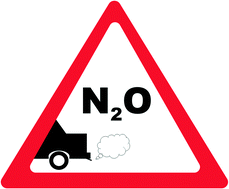It is no laughing matter: nitrous oxide formation in diesel engines and advances in its abatement over rhodium-based catalysts
Abstract
Nitrous oxide (N2O) appears as one of the undesired by-products in exhaust gases emitted from diesel engine aftertreatment systems, such as diesel oxidation catalysts (DOC), lean NOx trap (LNT, also known as NOx storage and reduction (NSR)) or selective catalytic reduction (NH3-SCR and HC-SCR) and ammonia slip catalysts (ASC, AMOX, guard catalyst). N2O acts as a greenhouse gas, damages the ozone layer and causes many environmental and human health problems. The catalytic N2O decomposition (deN2O) to nitrogen and oxygen serves as one of the available options for the removal of its emissions. In this Minireview, we focus on possible processes responsible for N2O formation in the lean NOx trap unit. Catalysts based on rhodium are the most active in deN2O. Thus, we provide an overview on rhodium-based catalysts in metallic form, supported systems, modified zeolites, hydrotalcite derived mixed metal oxides and bimetallic (transition metal–rhodium) systems, as potential candidates for reducing N2O emission. Finally, we propose future directions in developing efficient catalysts for deN2O.



 Please wait while we load your content...
Please wait while we load your content...